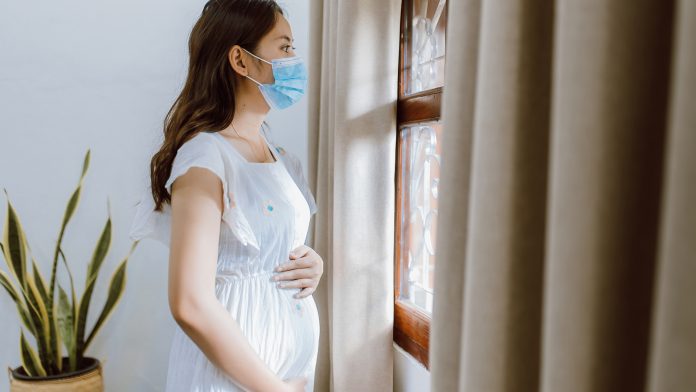
Research performed in the US suggests that asymptomatic Covid infections may pose risks for pregnant women, finding that they may cause long-term consequences for a developing baby.
A study conducted by a team at the University of Kentucky College of Medicine has uncovered new long-term impacts of asymptomatic Covid infections. They discovered that pregnant women with mild or asymptomatic infections may have triggered immune responses that cause inflammation in the placenta, potentially putting the baby at risk.
Ilhem Messoudi, PhD, the leader of the study and chair of the Department of Microbiology, Immunology and Molecular Genetics, commented: “Prior to this study, this response was only thought to occur in severe Covid cases. We now know that even a mild infection that doesn’t even register with a patient is still being registered by the maternal immune system. The placenta had very clear signs of having sensed that there was an infection.”
The investigation, which is published in Cell Reports, was funded by the National Center for Advancing Translational Sciences of the National Institutes of Health.
What is an asymptomatic Covid infection?
Asymptomatic Covid infection occurs when an individual contracts the SARS-CoV-2 virus and, despite testing positive, does not experience any of the signs or symptoms that are commonly associated with the disease, such as fever, cough, chills, loss of smell and taste, and headache among others. A systematic review and meta-analysis of 95 studies that included nearly 30 million participants identified that 40.5% of confirmed Covid cases were asymptomatic infections.
Impacts of Covid during pregnancy
Covid transmission is extremely rare between the mother and baby due to the protective qualities of the placenta, which safeguards a developing foetus from a range of pathogens, including SARS-CoV-2. However, the greatest risk for a foetus is how the mother’s immune system responds to the virus.
Messaoudi explained: “Immune responses triggering inflammation of the placenta can be linked to adverse pregnancy outcomes including preterm labour and preeclampsia, as well as neonatal complications due to reduced immune function of the baby.”
The researchers employed single-cell RNA-sequencing and multicolour flow cytometry to analyse immune cells in placenta tissue and blood from pregnant mothers who tested positive for SARS-CoV-2 before giving birth. Subsequently, the team compared samples from women with asymptomatic Covid infection to those without infection.
The results demonstrated that although the Covid positive women had activated T-cells, they displayed reduced levels of specialised macrophage cells that regulate the tissue. The researchers observed that the immune cells in the placenta were rewired in a way that made the tissue more susceptible to inflammation.
The groundbreaking findings enhance understanding of the relationship between Covid and the maternal immune system and will help future studies on the long-term impacts of SARS-CoV-2 infection on mothers and babies.
Messaoudi concluded: “This tells us how capable the maternal immune system is, while at the same time shows how detrimental Covid can be even when the infection is not severe. These are all reasons why it’s so important that pregnant mothers get vaccinated.”
























